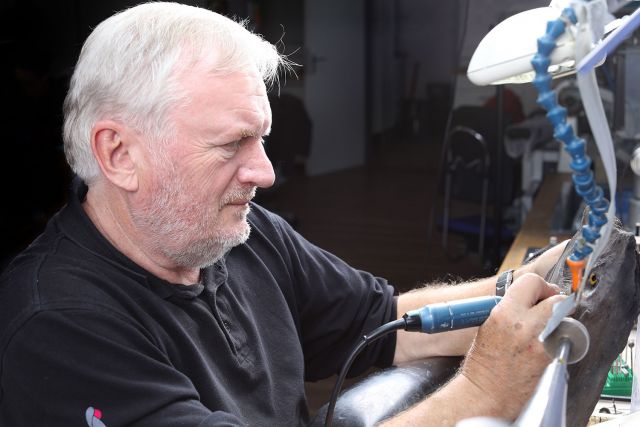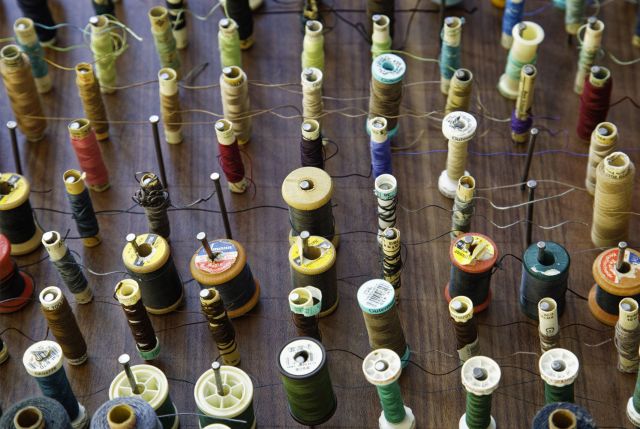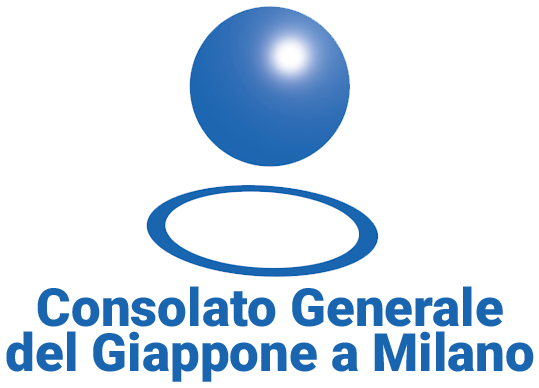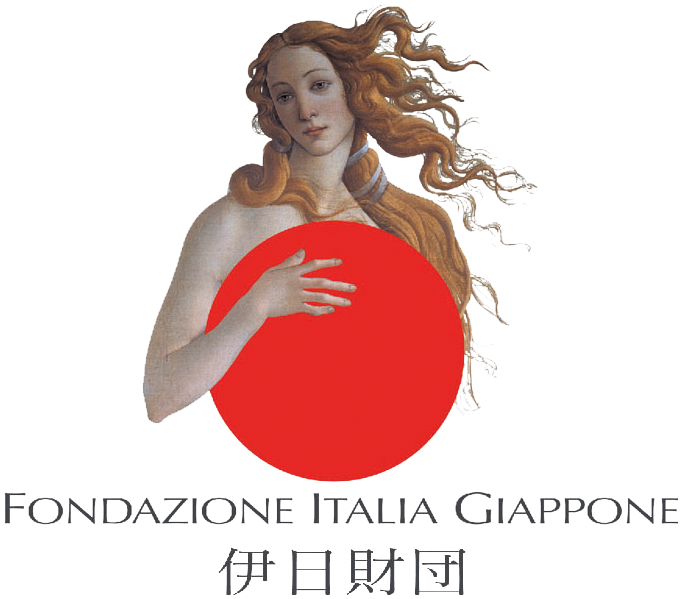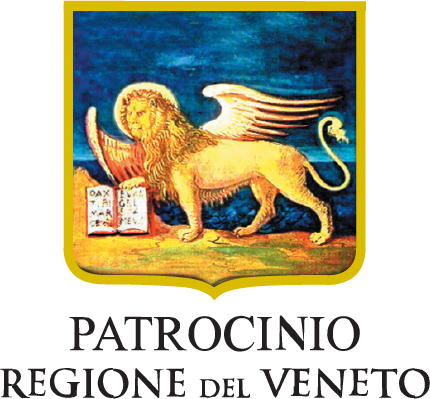Each of these tall vessels are made from two or three wheel thrown stoneware elements. After they have dried, each element is trimmed and each part assembled with slip forming the final form. The final forms are then dried for a week or so before their first firing. The resulting vessels are covered with a matt black and pink glaze and finally fired in an electric kiln at 1280°C.
Height 41 cm
Height 44 cm
Height 25 cm
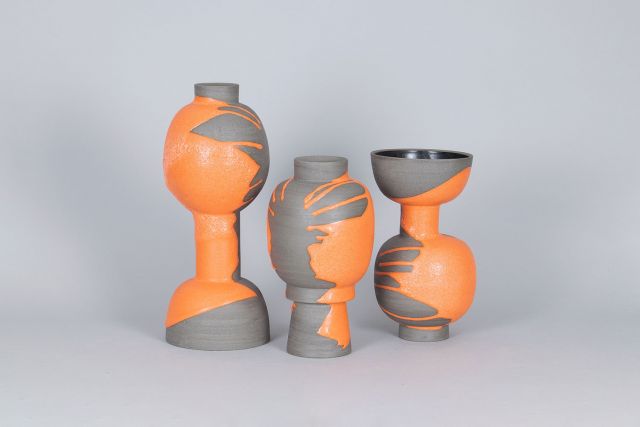
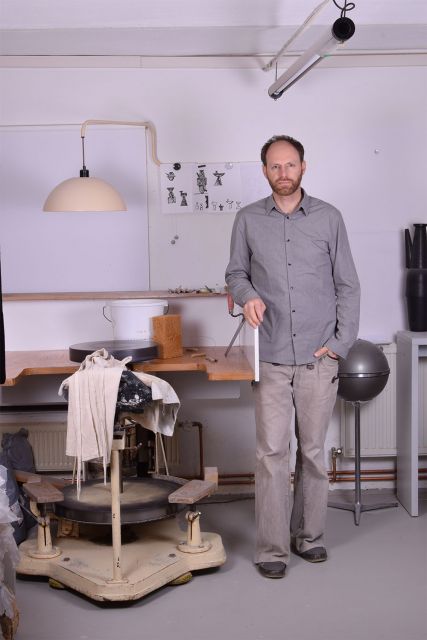
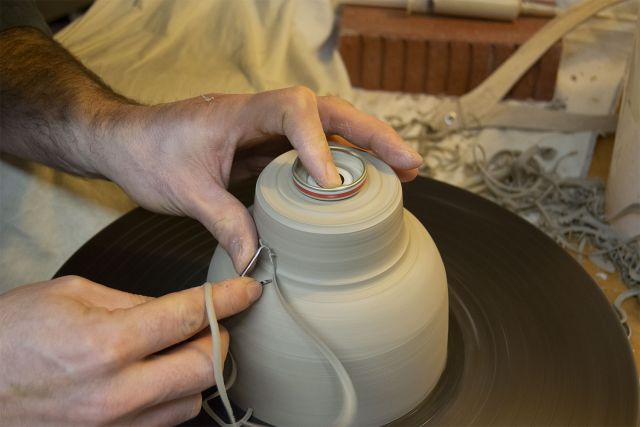
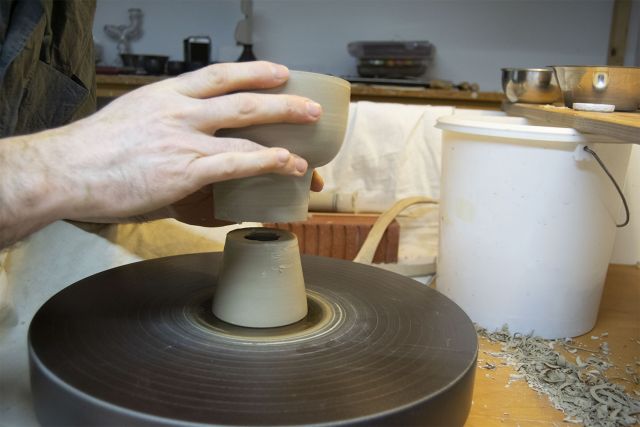
Lutz Könecke
- Ceramicist
- Moringen, Germany
- Master Artisan
- Recommended by Zentralverband des Deutschen Handwerks
By appointment only
+49 55035971095
From little to large
- • Lutz started as a ceramics collector
- • He creates sizeable assembled vessels
- • Glazing is a very important part of his process
Lutz Könecke has been a ceramics enthusiast all his life, however his passion started as a collector of 1920s and 1970s ceramics. It was in 1999, after he had trialled careers in archaeology, photography, and acting, that he realized that his heart was in ceramics and that he wanted to be not just a collector but a creator. “I had been collecting ceramics for years by then and I was intensely occupied with their history. My interest in it grew steadily. So I decided that I wanted to make ceramics myself”. Thus, with a profound understanding of ceramics history, Lutz Könecke started to develop his very own design language – for which he is known today – under the guidance of Ralf Busz and Urs Lüthi at the University of Applied Arts in Kassel.
Read the full interviewWorks
Photo: © Lutz Könecke

Photo: © Lutz Könecke
Each of these tall vessels are made from two wheel-thrown stoneware elements. After they have dried to a leather hardness, each element is trimmed and each parts assembled with slip forming the final form. The focus of Lutz Könecke’s work is on the assembly of vessels from two or more components. In this way, forms grow that would not be possible if thrown in one piece. It is not about a highly complex form but more about working precisely with it.
Height 25 cm
Height 28 cm
Height 22 cm

Photo: © Lutz Könecke
Each of these tall vessels are made from three wheel-thrown stoneware elements glazed in matt yellow and orange hues. Lutz’s work focuses on assembling vessels from two or more components. As such, forms are created that would not be possible if thrown in one piece.
Height 36 cm
Height 34 cm

Photo: © Lutz Könecke
Each of these tall vessels are made from two wheel thrown stoneware elements, glazed with orange and pink glaze and finally fired in an electric kiln at 1280°C. The focus of Lutz ’s work is on the assembly of vessels from two or more components. Working in this fashion provides him with the opportunity to play with volume and tension in the body of the vessel.
Height 45 cm
Height 51 cm
Height 51 cm

Photo: © Lutz Könecke
Various elements on this matt black jug were wheel thrown and assembled together with slip after an initial drying. The focus of Lutz's work is on the assembly of vessels from two or more components. In this way, forms are created that would not be possible if thrown in one piece.
Height 35 cm
Height 39 cm
Height 41 cm






